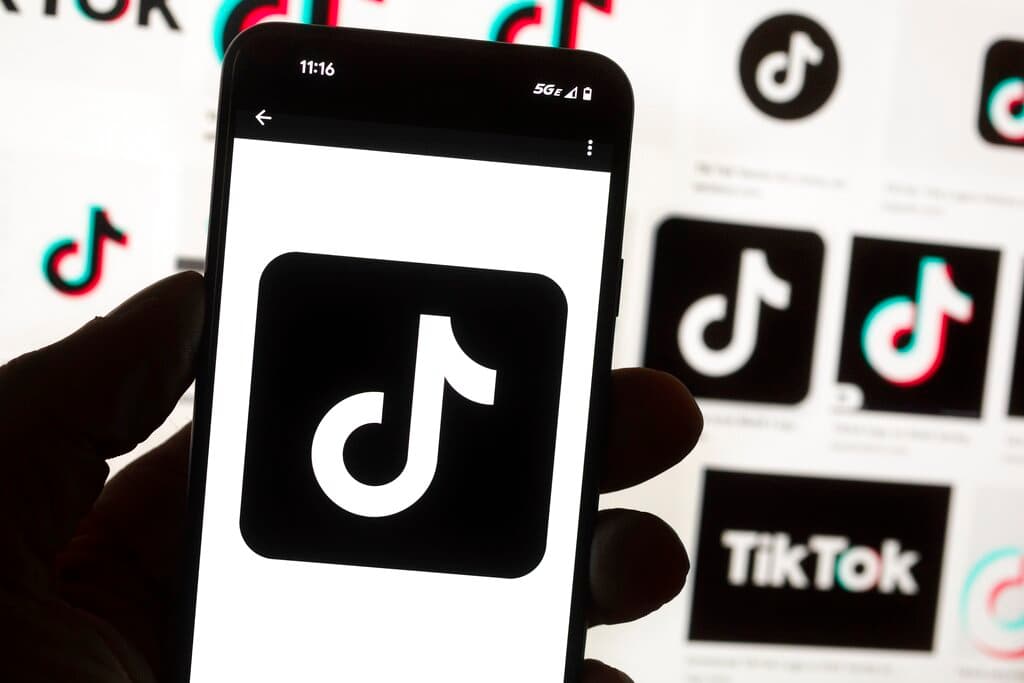Maryland TikTok Ban Joins a Growing List
Several members of the Biden administration have expressed grave concerns about the proliferation of TikTok and the potential for its use as an instrument of espionage.

With progressive Democrats directing their ire at Elon Musk’s new Twitter, more and more conservatives, and even some moderate Democrats, are setting their sights on another social media platform that they insist poses a much greater risk than the unmoderated megaphone presided over by Mr. Musk — Chinese-owned TikTok.
Maryland’s Republican governor on Tuesday issued an emergency directive prohibiting the use of TikTok and several other Chinese- and Russian-made technologies in the state’s executive branch. Others that will be removed and blocked from state computers include Alibaba’s AliPay and Tencent’s WeChat.
“These entities present an unacceptable level of cybersecurity risk to the state, and may be involved in activities such as cyber-espionage, surveillance of government entities, and inappropriate collection of sensitive personal information,” the governor’s statement said.
Governor Hogan’s announcement comes one week after the Republican governor of South Dakota, Kristi Noem, signed a similar edict directed at the popular video application, the first foreign-owned social media platform to gain widespread adoption in America. Ms. Noem accused TikTok’s owners of surreptitiously gathering users’ data for purposes that are so far unclear.
TikTok is believed to have as many as 80 million monthly active users in the United States, 60 percent of whom are between the ages of 16 and 24.
“It’s off our networks. It’s blocked off of our servers,” Ms. Noem said in an appearance on Fox News. “Any state employee, anybody who contracts with the state of South Dakota, anybody who uses any of our systems no longer will be able to download or utilize this app because of the national security threat that it is.”
According to the Associated Press, several other states are considering implementing similar bans or have already done so and more could be on the way. South Carolina’s governor, Henry McMaster, also a Republican, this week asked the state’s Department of Administration to ban TikTok from all state government devices it manages. The governor of Nebraska, Pete Ricketts, blocked TikTok on state electronic devices in August 2020.
On Wednesday, Indiana became the first state to file a lawsuit against the company, alleging that the company is deceiving users about China’s handling of their data and exposing underage users to harmful material. The office of the state’s Republican attorney general, Tod Rokita, called the company a “wolf in sheep’s clothing.”
Members of Congress representing Wisconsin, led by Senator Johnson, a long-time critic of the platform, called on the governor of their state to enact similar measures. Their letter to Tony Evers said the governor should “lead by example and delete TikTok from [his] own devices.”
Other countries are also moving to curtail the app’s use. Taiwan announced a ban on TikTok and other software and services linked to the Chinese Communist Party on Monday, calling the products a threat to its national security.
The White House has repeatedly said in recent weeks that it is “keeping a close eye” on the machinations at Twitter, but has remained silent on the subject of TikTok. Negotiations are reportedly under way between U.S. officials and the app’s owner, ByteDance, but have bogged down over the issue of trust between the two parties, according to the Wall Street Journal.
Several members of the Biden administration, among them the director of national intelligence, Avril Haines, and the FBI director, Christopher Wray, have expressed grave concerns about the proliferation of TikTok and the potential for its use as an instrument of espionage.
Speaking to an audience at the University of Michigan’s Gerald R. Ford School of Public Policy last week, Mr. Wray said he is particularly concerned about the app’s recommendation algorithm, “which allows them to manipulate content, and if they want to, to use it for influence operations.”
“All of these things are in the hands of a government that doesn’t share our values, and that has a mission that’s very much at odds with what’s in the best interests of the United States. That should concern us,” Mr. Wray said.
In a rare public appearance last week, the CEO of TikTok, Shou Zi Chew, defended the platform as a place for young people to express themselves and build communities around shared interests. Speaking at the New York Times Dealbook conference, he said that the company takes the concerns of lawmakers and others seriously and that it is working with the Treasury Department’s Committee on Foreign Investment in the United States to address those concerns.
In an effort to appease U.S. officials concerned about the app’s ability to transfer the personal data of its users to computer servers in China, Mr. Chew said the company is rolling out “Project Texas,” a partnership with Oracle in which the data collected by TikTok currently held on servers in Virginia and Singapore would be moved to a Texas-based cloud infrastructure that only U.S. citizens will supposedly be able to access. He said that “no foreign government has asked us for user data before, and if they did we would say no.”

